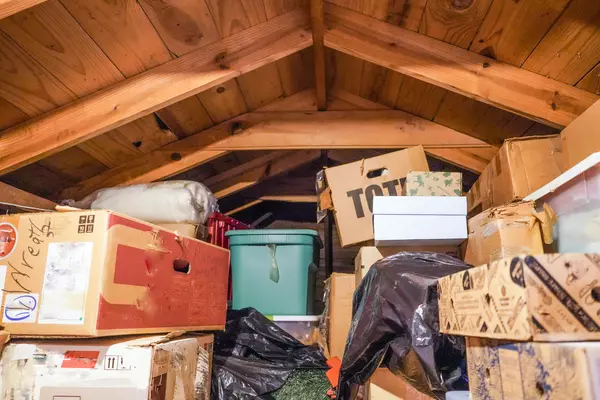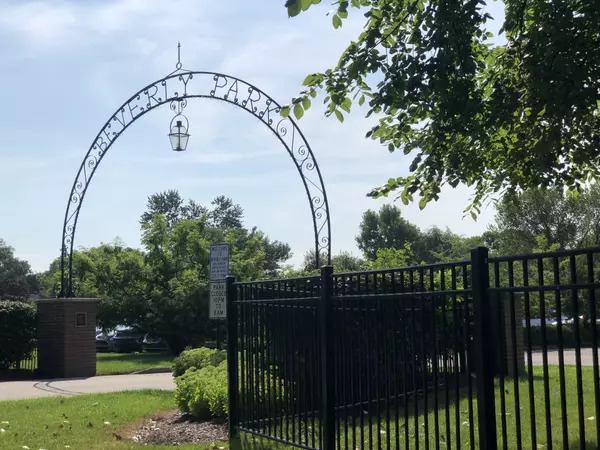

Declutter Your Home in a Weekend
Are you looking for a way to reclaim your space and reduce the chaos in your home? Decluttering not only improves the aesthetics of your living space but also enhances your mental clarity and overall well-being. Tackling this task over a weekend can be highly effective, allowing you to start the new week refreshed and organized. Here’s a straightforward, three-step guide to help you declutter your home efficiently over just two days. Step 1: Plan and Prepare Friday Evening – Setup and Strategy Before diving into the decluttering process, spend your Friday evening setting the stage for a productive weekend:- Create a Checklist: List all the rooms and specific areas you plan to tackle. Prioritize them based on how cluttered they are or how frequently they are used.- Gather Supplies: Collect boxes, garbage bags, and cleaning supplies. Label the boxes for different purposes: Donate, Sell, Recycle, and Trash.- Set Goals: Be realistic about what you want to achieve. Decide if you're going for a light declutter or a deep clean. This will help you manage your time and expectations. Step 2: Execute the Declutter Saturday – The Major Push Dedicate Saturday to doing the bulk of your decluttering, focusing on the larger or more cluttered areas:- Start with the Hardest Part: Tackle the most cluttered room first. This is often the kitchen or living room where items tend to accumulate.- Sort Ruthlessly: Go through every item and decide if it should be kept, donated, sold, recycled, or thrown away. Be honest about what you really need and use.- Organize as You Go: Once you’ve cleared out the unnecessary items, organize what remains. This might involve rearranging items for better accessibility or adding organizational solutions like shelves or bins. Step 3: Finalize and Follow Through Sunday – Wrap Up and Wind Down Use Sunday to handle the smaller tasks and finish off the weekend’s efforts:- Address Remaining Areas: Tackle any smaller areas or rooms you didn’t get to on Saturday, like bathrooms and closets.- Take Care of Disposal: Drop off donation boxes at your local charity. List items for sale on online marketplaces if you haven't already. Ensure that recyclables and trash are properly sorted and ready for pickup.- Deep Clean: Once the clutter is out, do a thorough cleaning of the now-organized spaces. Vacuum, dust, and wipe down surfaces to complement your decluttering efforts. Maintain Your Clutter-Free Home To maintain the serenity of your newly decluttered home, adopt a few habits:- One In, One Out: For every new item that comes in, ensure an old one goes out. This will prevent clutter from building up again.- Regular Mini-Cleans: Set aside a few minutes each day for a quick tidy-up, which can prevent small messes from becoming larger problems.- Seasonal Reassessments: Plan to reassess your space each season. A quick declutter session three to four times a year can keep your home in check without needing another major weekend overhaul. Ready to Take the Next Step in Organizing Your Home? If you’re planning a more significant change, like downsizing your home, we have just the guide for you. Get your free copy of Downsizing Do's & Don'ts—an essential guide to making the process smoother and more efficient. Contact Jeff Higgins today to receive your guide and start your journey to a simpler, more streamlined life. Reach out via email at jeff@higginspartners.com or call directly at (248) 233-6165. By following these three simple steps, you can transform your home into a tidy, organized space in just one weekend. Not only will your living environment be more pleasing, but your mind will also feel clearer and more at peace. Ready, set, declutter!
Read More

3 Biggest Challenges of Downsizing Your Home Today
Downsizing your home can be a practical decision for many homeowners, especially those looking to simplify their lifestyle, reduce maintenance costs, or move closer to family, friends or grandkids. But the process isn't without its challenges. From emotional ties to logistical hurdles, downsizing requires careful consideration and planning. In this blog, we'll explore the three major challenges homeowners face when downsizing and offer solutions to help you navigate this transition smoothly. 1. Emotional Attachment to the Current HomeFor many, a home is more than just a physical space. It's a treasure trove of memories and emotional milestones. The thought of leaving behind a place where you've celebrated life's many joys and weathered its storms can be daunting. The key to managing this emotional transition is to focus on the positive aspects of downsizing, such as the opportunity for a new beginning and a simpler lifestyle that gives you more time to enjoy life's pleasures. Creating a detailed plan for sorting through belongings and deciding what to keep can also help manage emotional stress, ensuring that you only bring items that serve a purpose or bring joy. 2. Low Inventory of Available Homes for SaleIn today’s market, finding the right smaller home can be a significant hurdle due to low inventory. This scarcity can lead to bidding wars and inflated prices, making it tough to find the right place at the right price. To combat this, it's crucial to start your search early and remain flexible about location and features. Working with a knowledgeable real estate professional who understands local market trends and has access to up-to-date listings or off-market opportunities can also significantly ease the process. 3. High Real Estate Values and Expensive Moving CostsWith real estate values soaring, downsizing doesn't always equate to downscaled costs. In many cases, smaller homes in desirable locations come with hefty price tags. Moreover, the costs associated with selling your current home—like renovations, and moving expenses—can add up quickly. Plus here in Michigan you may find a big increase in property taxes compared to your current home. Financial planning is essential in this scenario. Consider all associated costs and compare them against your budget and potential sale price of your current home to ensure that downsizing makes economic sense. While downsizing can be challenging, the right strategy and support can make downsizing your home worth it. If you're contemplating downsizing and find yourself facing these challenges, remember, you don't have to do it alone. For more information on how to navigate the process of downsizing your home, feel free to contact Jeff Higgins. You can reach Jeff via call or text at (248) 233-6165 or email him at jeff@higginspartners.com. Whether you're just starting to think about downsizing or are already in the midst of planning your move, Jeff is here to help you every step of the way.
Read More

Is Your Home Too Much to Handle? 5 Signs It's Time to Downsize
Are you feeling overwhelmed by your current living situation? It might be time to consider downsizing. Here are five signs that downsizing could not only simplify your life but also enhance your lifestyle. 1. Rising Housing Expenses Exceed 33% of Your Income Ideally you want to keep your housing outlay to approximately 30% or maybe 33% per month, especially if you are on a fixed income. Downsizing to a smaller, more affordable home can alleviate these financial pressures, reduce monthly expenses like utilities, property taxes, and maintenance, and ultimately improve cash flow. However, keep in mind in the short run, you will have the upfront costs of moving, including repairs, moving expenses, and closing costs. 2. Overwhelmed by Home Maintenance As you age, home maintenance tasks can become daunting and physically demanding. Whether it’s minor repairs, lawn mowing, or snow shoveling, the upkeep can consume considerable time and effort, making downsizing an appealing option. Selling your home while it’s still in good condition minimizes the need for major repairs and reduces ongoing maintenance costs, which can add up over the years. 3. The Home No Longer Fits Your Needs Many seniors find that their homes no longer meet their physical needs as they age. Challenges such as navigating stairs, especially if you are in a two-story home in Bloomfield Hills or Birmingham. And maintaining your yard and going up to your attic for storage can make daily life difficult. Downsizing to a one-level home with features such as laundry on the first floor, wide hallways, zero-step entries, and walk-in showers can significantly enhance comfort and accessibility. Check out single-level living homes in the Birmingham-Bloomfield area here. 4. Desire for a Simpler, Cost-Effective Lifestyle If your lifestyle aspirations include less financial strain and more freedom for travel and leisure activities, downsizing can be a strategic move. By relocating to a more affordable home, you could potentially save thousands of dollars annually. 5. Seeking Social Engagement and Community For many seniors, staying in a family neighborhood can lead to social isolation as peers move or pass away. Moving to a senior living community can offer a vibrant social network and amenities that enhance quality of life, such as organized activities, transportation, and security services. These communities can help prevent loneliness and depression, contributing to a happier, more engaged lifestyle in your later years. Downsizing isn't just a practical decision; it's a proactive step towards a lifestyle better suited to your current needs and future happiness. Whether it's to reduce financial burden, ease the demands of home maintenance, or engage more fully in a community with peers, downsizing offers numerous benefits that can enhance your quality of life. Interested in Learning More About Downsizing? For more information on how to transition to a smaller home and simplify your life, visit our website or our YouTube channel Downsizing in Detroit. contact Jeff Higgins directly at (248) 233-6165 or via email at jeff@higginspartners.com. Let us help you make a smooth and rewarding downsizing journey.
Read More

Navigating Probate in Michigan
What is Probate? Probate is the court-supervised process of settling a deceased person's estate in Michigan. If the deceased left a will, the court authenticates it and appoints an executor—often named in the will—to manage the estate. This executor will catalog assets, appraise them, settle debts and taxes, and distribute the remainder to the beneficiaries as stipulated in the will. Without a will, Michigan’s laws determine the asset distribution and the court appoints an executor. Probate is a cumbersome process for your heirs that can be expensive and in Michigan can take 7 to 12 months. Ideally you do not want to put your heirs through the headache and hassle of the time-consuming process of probate. Is Probate Always Necessary? Not every estate must undergo probate in Michigan. It is typically required if the deceased did not leave a will, had only a will (without a living trust), or if there are disputes over an existing trust. However, probate can be bypassed under certain conditions: - Assets owned jointly - Assets with designated beneficiaries (like life insurance or retirement accounts) - Assets placed in a living trust There is another way to avoid probate. In Michigan, we are part of the fortunate five states that allow you to use a lady bird deed. Lady bird deeds are often used to keep property in the family without sacrificing Medicaid eligibility or subjecting the asset to state efforts to recover Medicaid costs after you die. A lady bird is not a substitute for a will or a trust but a great tool to use in estate planning to avoid probate. The Probate Process Steps The probate process in Michigan entails several critical steps: 1. Filing a Petition: The executor, or an interested party if there is no will, files a petition to open a probate case and appoint a personal representative. 2. Notification of Heirs and Creditors: The appointed representative must notify potential heirs and creditors, informing them about the estate proceedings. 3. Inventory of Assets: The representative must list and appraise all probate assets, which might include real estate, vehicles, personal items, and financial accounts. 4. Settling Debts and Taxes: Using the estate’s assets, the representative pays off debts, expenses, and any taxes owed by the deceased. 5. Distribution of Assets: After all obligations are met, remaining assets are distributed according to the will, or according to Michigan law if no will exists. The personal representative is tasked with selling the deceased’s house, condo or investment properties. 6. Closing the Estate: The representative submits a final account to the probate court detailing all transactions and distributions. Upon approval, the estate is formally closed. Understanding probate is crucial for managing your expectations and responsibilities as an executor, personal representative or beneficiary. We have helped many families create a plan for their real estate and properties called a real estate plan. We work with you to create a real estate plan and a real estate plan is a key part of an estate plan that will help preserve wealth. For more information on your real estate plan reach out to Jeff Higgins of Higgins Partners, brokered by Real Broker, LLC. You can contact Jeff directly at (248) 233-6165 or via email at jeff@higginspartners.com. We're here to help you with your real estate needs! Disclaimer: Jeff Higgins and Higgins Partners is a licensed real estate agent specializing in helpping homeowners downsize and seniors. Higgins Partners is not a legal firm, and this blog should not be construed as legal advice. Please consult with a qualified attorney for detailed information and guidance on probate matters.
Read More
Categories
Recent Posts










